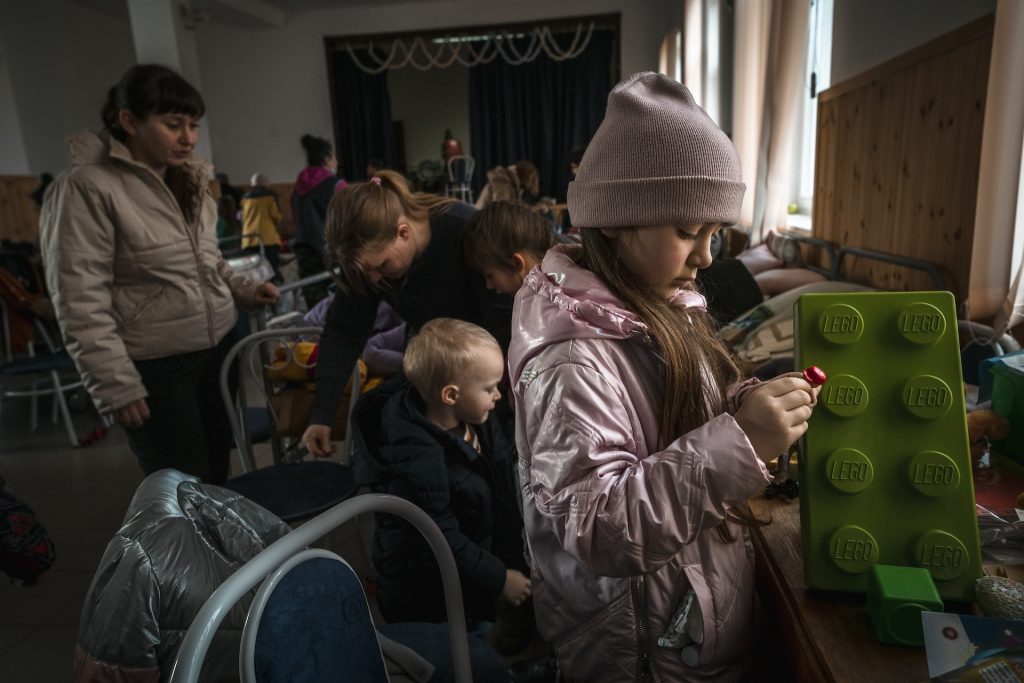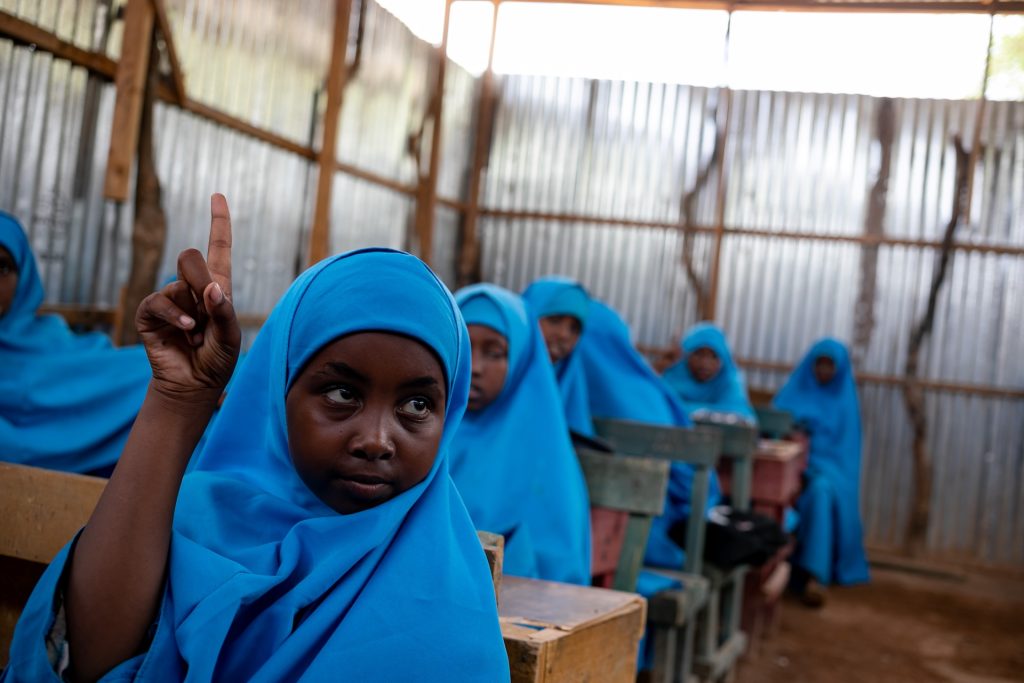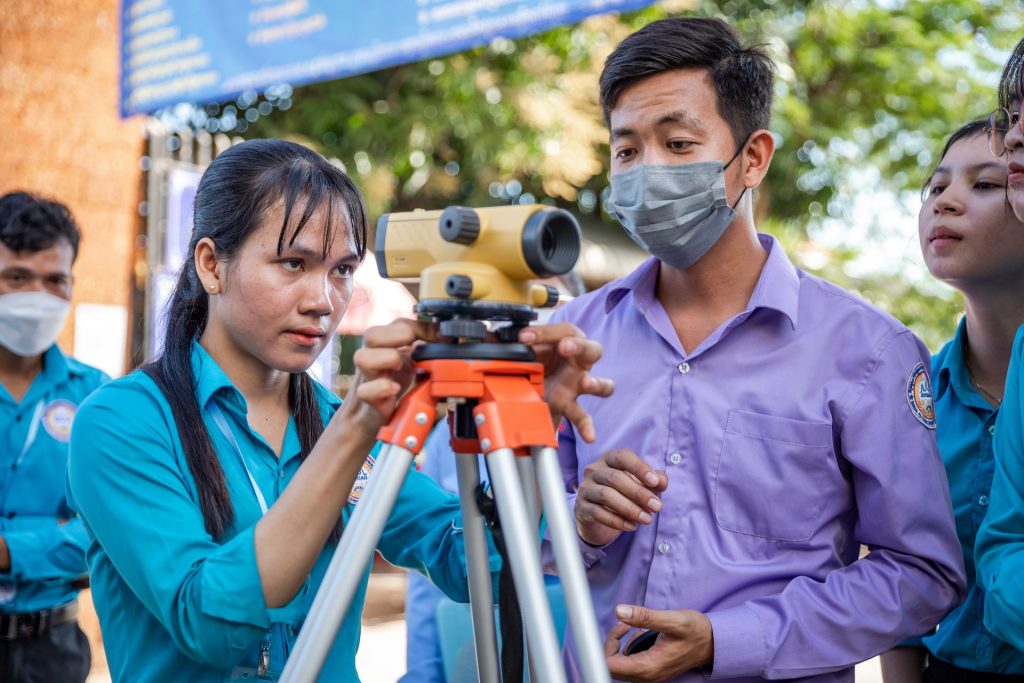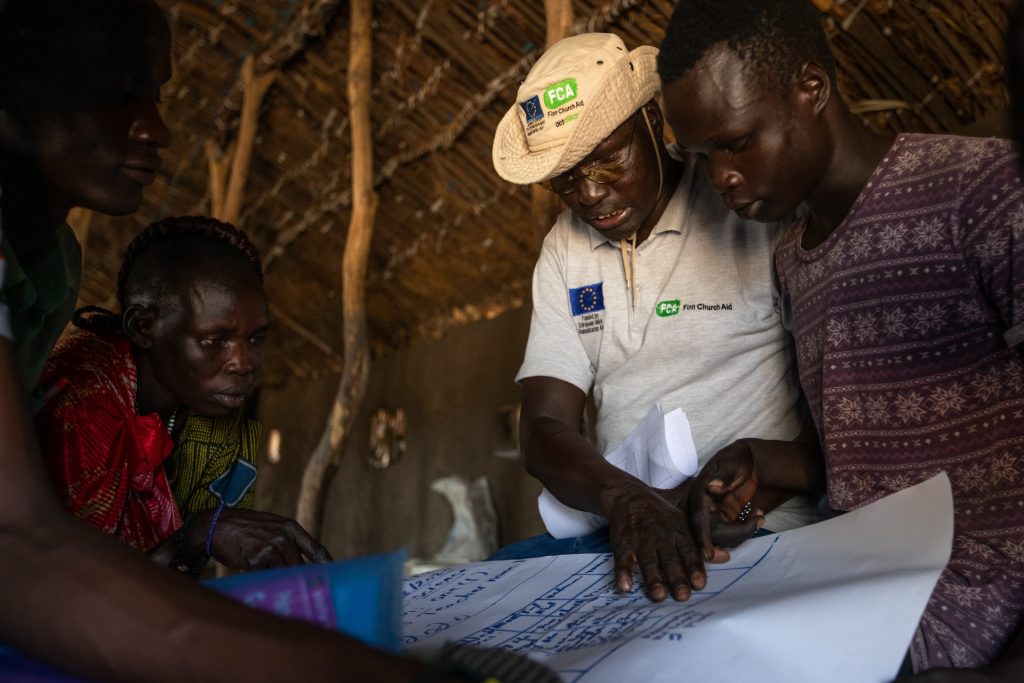In the midst of an emergency – can education save lives?
Why is education important in the middle of a war or after an earthquake? Why is FCA investing in education in emergencies while people are simultaneously short of basic needs like water and food? Is education a basic right and what does it mean to say that education saves lives?
Unstable environments always affect education
FCA works in countries where schooling and quality education cannot be taken for granted. Conflict, disaster or other negative circumstances interfere with children’s development and learning in multiple ways.
Where FCA works, there are often wars and conflicts that make schooling difficult and even dangerous. The journey to school may not be safe. Schools may be the targets of bombings and other acts of war. For example, in Ukraine, 365 school buildings have been destroyed by war and nearly 3,800 damaged as of summer 2024.
We all have memories of the Covid pandemic that closed down societies around the world. In Uganda, schools were closed for two years. It was the world’s longest-ever school closure and its consequences will be felt for a long time to come. Other epidemics can also prevent school attendance: in Mubende, Uganda, school closures continued into late 2022 due to the spread of Ebola virus.
Climate change can also decide fate of children’s education: changing conditions mean that water-fetching trips and the effort to get food for the whole family take up a large part of the day. In the worst case, the changing climate will make areas uninhabitable and force families to leave their homes. In addition, for many families, the economic situation makes schooling impossible. Children have to help out at home or go to work instead of attending school.

In crises, education facilities become shelters
In a sudden crisis, such as a natural disaster or the outbreak of conflict, communities enter extraordinary times. Those who have lost their homes, those who have fled and those who have otherwise faced a crisis face a shortage of basic necessities. In a humanitarian disaster, people need shelter, warmth, food, water, medicine and protection.
When Russia invaded Ukraine in late February 2022, huge numbers of Ukrainians fled westwards. Some crossed the border into neighbouring countries, others remained in their home countries as internally displaced persons. Towns and villages were suddenly at the limits of their endurance. Shelters were set up for the refugees in churches, parish halls and village halls. Without exception, schools were also made available to the refugees: schoolchildren stayed at home, beds and mattresses were brought into classrooms, school cooks prepared food for the refugees instead of school meals.
In the face of a humanitarian disaster, schools provide people with vital shelter. Often the situation is also prolonged. The devastating earthquake of February 2023 affected more than 73,000 Aleppo families in Syria. Many families were still living in temporary shelters set up in schools during the summer. Instead of normal lessons, small classrooms were used day after day to carry out the daily chores of large families.
The prolongation of an exceptional situation suddenly creates a new set of headaches: children and young people have no structure to their days, regular teaching is not possible and pupils fall behind. They also miss out on important socialising with their peers. Psychologists in Ukraine report that after years of remote learning due to Covid and then the war, children struggle with communicating and cooperating with their classmates on returning to school.
International and local aid agencies, volunteers and authorities are doing what they can with their resources. For example, FCA has organised after-school activities for children in temporary facilities to allow them to socialise and relax, tutoring to bridge educational gaps, and psychosocial support to deal with trauma.
However, it is in the interests of children and young people that, in the long term, schools should be used for education and training.

Education saves lives
International education experts share the view that education has a life-saving impact. This view can be viewed from several angles: for example, the immediate impact of schooling in a crisis situation, and the long-term effects of education.
In the midst of crises and conflicts, schools have a stabilising and embedding effect on their pupils. At school, they can meet their peers and stay in touch with safe adults. After trauma, the human mind needs routines and a sense of normality that can be nurtured at school. In Ukraine, FCA has supported the provision of bomb shelters in schools. While air raids disrupt the normal school routine every few days, learning and everyday life can continue in underground classrooms where childrens can do their homework, play and participate in lessons. Some schools have also built sleeping and washing facilities in bomb shelters.
In situations of war and conflict, schools can also provide information on hazards and risks: classrooms are good places to raise awareness of mines and explosives, for example. A school can also be the place where a child or young person gets the only decent meal of the day – school lunch. A well-functioning school and professional staff also protect pupils from abuse and child labour.
In addition to the immediate, protective and acutely positive impact on quality of life, school attendance also has long-term positive effects. Through education, children and young people have a better chance of building a better future for themselves. Through education, children and young people learn to recognise their own strengths. Even learning to read, count and digital skills provides the necessary prerequisites for a more independent life.
Education is particularly important for young people to help them identify their potential on the labour market of the future as they approach adulthood. For some, success at primary school means further study and an academic career. For others, vocational training offers the opportunity to learn skills such as tailoring, farming, mechanics or digital marketing, which will help them to secure at least part of their future livelihoods. Schooling for girls is particularly important because it enables women to earn their own income and support themselves. A woman’s livelihood, in turn, often benefits the whole family. An educated woman also encourages her children to go to school.

Teachers are key to education success
Teachers play a huge role in the lives of children and whole communities. For a child or young person, a teacher can be an important safe adult who cares for them and meets them face to face daily. Teachers set an example that children and young people are happy to follow.
FCA has supported schools in rural areas in Mubende, Uganda. In recent years, schoolchildren there have improved their learning outcomes significantly. This is the result of a project that trained teachers, involved parents in school activities and provided better learning opportunities for pupils from all backgrounds. Before the project, even teachers did not always bother to come to school: this could be because of low pay, long commutes or a general lack of motivation to teach. When the teacher did not come to school, the children did not come either.
Slowly, the change took root in the community. Parents began to see the importance of education. Teachers were trained, provided with housing near schools and plots of land to cultivate. The maize trade boosted teachers’ small monthly incomes. Teachers began to visit homes to talk to families. Teenage mothers and disabled children were brought into the classroom. Many families now praise the teachers’ work and say that schooling has brought meaning and positive energy to their children’s and families’ lives.
The work of a motivated teacher can be a game changer for the whole community, and their work is also important in humanitarian crises. That is why we need to invest in teachers’ skills and well-being. FCA has organised training courses to strengthen teachers’ knowledge and pedagogical skills, as well as career mentoring to provide a sense of professional pride and trajectory. In war-torn Ukraine and in Syria, where humanitarian crises have saturated the country, our work has focused in particular on psychosocial support: teachers have taken part in training courses to improve their own coping skills, but also their daily teaching work. Teachers have developed skills to deal with trauma with children and young people, whether they are dealing with the experience of being a refugee or the loss of family and home.

Education is a basic right – even in times of crisis
School is a place to learn the skills of the future, be they mathematical, linguistic, social or digital. For children, school is also a safe environment where children can be children: meet their peers, play and learn new skills.
Despite the life-saving impact of education, education in emergencies is grossly underfunded. It accounts for only about three per cent of global humanitarian funding. This is woefully inadequate given that, according to the UN, one in five children in the world lives in an area of armed conflict. In addition, millions and millions of children live under the impact of other types of humanitarian crises. This is a generation that must have the opportunity to build a future of livelihood, economy and peace.
Text: Ulriikka Myöhänen
Illustration: Julia Tavast